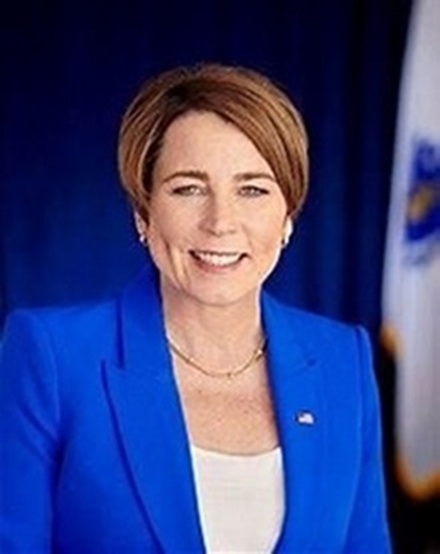Follow the money: Is the CVS-MGB primary care deal good for Mass.?
Essential details are too sketchy to endorse or reject the proposal outright, but one thing is certain — the plan needs close scrutiny
by John E. McDonough and Paul Hattis
THE PRIMARY CARE CRISIS in Massachusetts and the nation is omnipresent. Primary care providers—physicians, nurse practitioners, physician associates—are burning out in record numbers. According to the Massachusetts Health Policy Commission, lower-income residents “are most likely to have no primary care use” because of staff shortages and other barriers. Administrative burdens plague primary care practice, and pay is much lower compared with specialty providers. These obstacles discourage current clinicians from staying and new ones from joining. Community health centers, the respected bastion of primary care, experience these trends at even worse rates.

Maura Healey
The crisis caught the attention of Gov. Maura Healey in her January State of the State address, in which she called out the issue for special attention. “I am directing my administration to shift health care resources to the front lines. And by that I mean primary care,” she said. “We’ll drive career training pipelines to grow the workforce. I want a whole army of primary care providers out there, so when you call for an appointment, you’ll get one. You’ll get the affordable care you need, where and when you need it.”
Just weeks before her speech, the governor signed a health market reform bill that established a 25-member Primary Care Access, Delivery and Payment Task Force to recommend steps to stabilize and strengthen primary care statewide, with a September deadline for their initial recommendations.
Given these challenges, one might expect that a new plan from CVS Health and Mass General Brigham to launch expanded primary care services at 37 CVS “Minute Clinics” across the state might help. In early June, each filed similar and separate applications for plan approval from the Health Policy Commission to launch the initiative.
At this point, essential details are too sketchy to endorse or reject the proposal. While the need is too great to dismiss the idea out of hand, their plan is missing answers to key finance, operational, and workforce questions. One thing is certain — the CVS-MGB plan needs close scrutiny.
The plan must be considered in the context of the state’s primary care task force and its emerging vision for a reformed primary care system. We hope that the Health Policy Commission digs deeply into key questions and votes to perform a detailed cost and market impact review, which could happen as soon as later this month, with a finalized report to follow before the year’s end or more likely early 2026.
Mass General Brigham, the state’s leading mega-medical care provider, has a disappointing recent history in primary care. This past May, MGB leaders announced a $400 million five-year non-specific investment to bolster their own primary care system. Without details, it stands as a guilty plea to their underinvestment. What is the connection between this “investment” and the CVS-MGB plan? Your guess is as good as ours.
More evidence of neglect came from MGB’s primary care physicians who voted 183-26 in late May to unionize. Certification of their election has been delayed by President Trump and Senate Republicans’ slow-walking appointments to fill vacancies on the National Labor Relations Board. Absent new appointees, no union elections can be certified. MGB also has filed election challenges that are familiar tactics of union busters.
More than MGB, CVS Health appears to be the lead driver here, seeking to re-energize their 20-year lackluster urgent care business named “MinuteClinics.” Competitors Walmart and Walgreens abandoned or scaled back their own failed retail clinic operations.
CVS is now pushing a national corporate turnaround strategy by establishing hospital/medical center affiliations with their clinics in 26 states plus rolling out an enhanced MGB-style primary care model in nine of them, now including Massachusetts. CVS Health, also owner of insurer giant Aetna, fired its CEO, Karen Lynch, in 2024 for unsatisfactory profits and briefly considered splitting the company apart. The MGB affiliation is but one part of their aggressive strategy to regain high profits for their disappointed shareholders.
While nurse practitioners are a huge and growing part of the primary care workforce, the most successful primary care models use them as part of onsite teams that includes physicians. The CVS-MGB plan would keep them solo, with broader clinical duties and physician support only on call. Primary care physicians with whom we spoke see this primarily as a recipe for unneeded specialty and ancillary service referrals to MGB along with nurse practitioner burnout.
Also concerning are financial implications of this plan. Nurse practitioners would join the CVS-MGB network in CVS facilities as MinuteClinic employees. They will make referrals to MGB providers for specialty care, labs, and imaging plus hospital services.
MGB intends to include these clinics in their managed care contracts as part of its Accountable Care Organization. While their hope will be to reduce emergency department utilization and costs, those savings could be swamped by new revenues resulting from high priced referrals to MGB specialists and facilities for additional care and ancillary services.
On its face, this seems to be a high-priced money winner for both CVS Health and MGB.
The Health Policy Commission should explore the spending implications for 120,000 patients projected in this new arrangement. Should reimbursement rates for commercially insured patients referred by CVS be capped to mitigate pressures to raise premiums that will result as MGB gains market share from this new partnership. Would this scheme weaken MGB competitors who rely on these referrals and will lose market share?

On the flip side, while members of the state’s primary care task force are exploring big systemic changes to set a new long-term future for primary care in Massachusetts, their model likely will require legislative action that could take years to enact and to implement. Meanwhile, too many patients are desperate for primary care services now. The CVS-MGB initiative, while not close to an overall solution, might help some patients who feel the full brunt of the primary care crisis.
Much more needs to be revealed in the Health Policy Commission review process. Marginal, short-term gains in primary care access should not come at the expense of making the whole system more expensive and less stable. Yet, a long-term solution should not halt viable incremental improvements that may improve care for patients and consumers badly served by today’s structure. Since most observers agree that primary care suffers from severe underinvestment, should we reject a proposal that would make such an investment? A seemingly simple proposal quickly becomes much more complicated.
As so often is the case in Massachusetts health policy, the wisest voice in the room is that of Sen. Cindy Friedman, co-chair of the Legislature’s Joint Committee on Health Care Financing as well as a member of the primary care task force. She told us: “The notion that this is primary care is disturbing to me because primary care is comprehensive and collaborative. … How do you do that in a MinuteClinic in a CVS? … It presents a false narrative of what primary care needs to be.” Referring to MGB, she added, “If you have $400 million to spend, how about scholarships or loan forgiveness or expanding residency programs triple fold?”
Meanwhile, if MGB president and CEO Anne Klibanski wants to demonstrate interest in improving and upgrading primary care in her own system, she could begin tomorrow morning by recognizing the union that 88% of her primary care physicians voted for last May. That would be a solid signal and a good step forward. How about it, Anne?
Paul Hattis is a senior fellow at the Lown Institute. John McDonough is a professor at the Harvard T.H. Chan School of Public Health.
Commonwealth News Service
